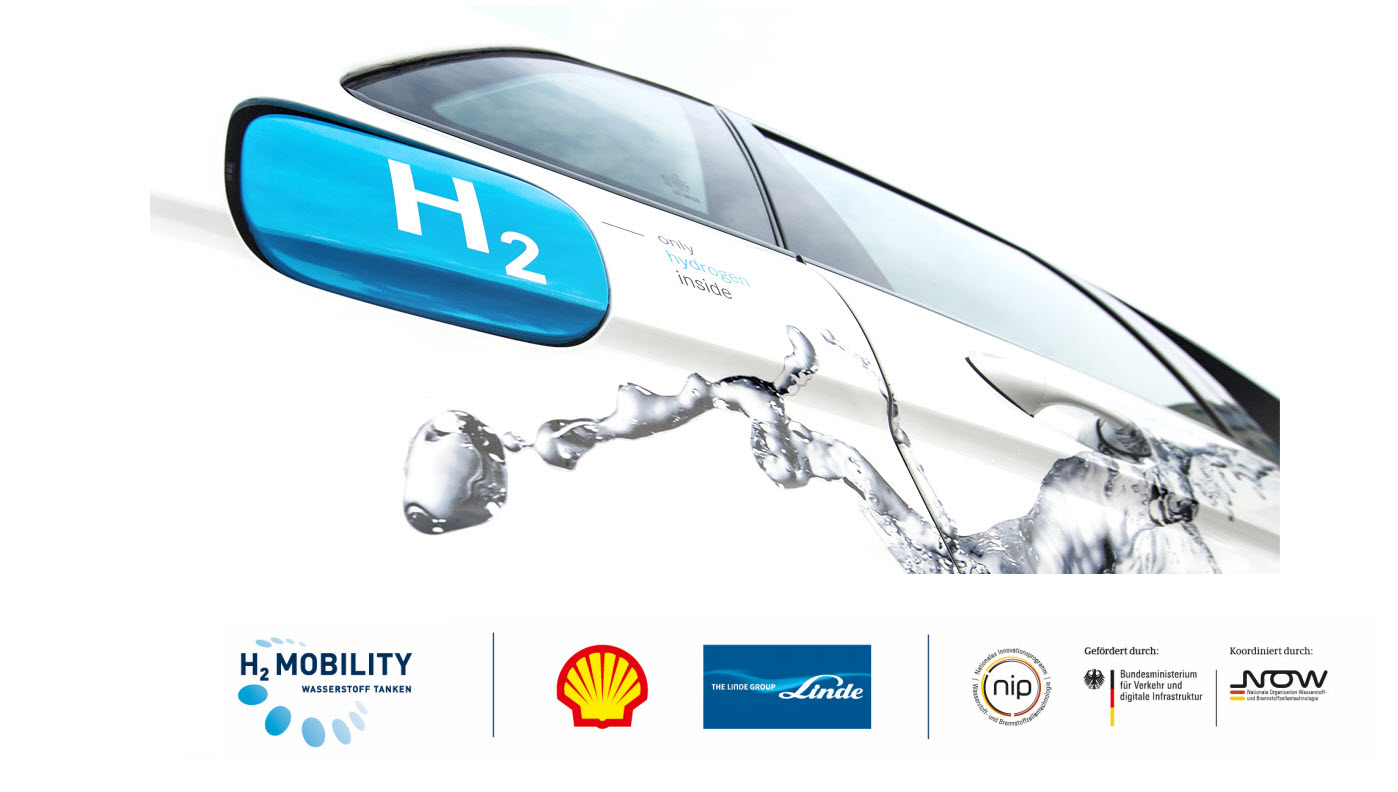
Wesseling / Bonn-– When it comes to the future of mobility, Wesseling and Bonn will be at the forefront in the future. In Wesseling, Shell plans to build the world’s largest electrolysis plant of its kind, which can make hydrogen from green electricity.
In order to enable motorists and companies in the region to operate climate-friendly fuel cell vehicles, hydrogen stations are to be built at the Shell filling station on Ahrstrasse, Wesseling, as well as at the Shell filling station Hermann-Wandersleb-Ring in Bonn. The stations are among the nation’s 100 first.
The stations in Wesseling and Bonn are scheduled to go into operation at the end of 2019. Hydrogen (H2) – made from renewable energy – is an important contribution to climate-friendly driving. The success of Wesseling has been made possible by several companies in the region: The concept of the Shell Rheinland Refinery was so impressive that the joint venture H2 MOBILITY won the tender from Wesseling in a nationwide tender. There are currently 64 H2 filling stations in Germany, and by the end of 2019 there will be around 100.
The new stations will be state of the art. Their operation by the driver is intuitive; Refueling is similar to conventional vehicles and takes three to five minutes, explains Thomas Bystry, project manager at Shell Hydrogen. Driving an H2 fuel cell vehicle causes neither local pollutants nor carbon dioxide (CO2) emissions. The range of these vehicles is 500 to 800 kilometers per tank filling.
The decision of the H2 Mobility found a positive echo in the companies of the regions: “The Rheinland refinery has been supplying fuels for our region for 80 years. Hydrogen can play an important role as a fuel for emission-free mobility. In the future, we will gladly supply this hydrogen from renewable energies – also for motorists, “explained Frans Dumoulin, Director of the Shell Rheinland Refinery.
“Wesseling lives as a city with and from industry. The companies find here good conditions to develop new things and shape the future. Hydrogen can be a fuel for this future. That’s why we are delighted when Wesseling is shaping the future of mobility, “emphasizes Erwin Esser, mayor of Wesseling.
The stations are funded by the Federal Ministry of Transport and Digital Infrastructure (BMVI) in the National Innovation Program Hydrogen and Fuel Cell Technology II (NIP II).
About the Shell Rheinland Refinery :
The Shell Rheinland Refinery is the largest German refinery. Each year, around 17 million tons of crude oil are processed. Up to 3,000 employees at the Cologne-Godorf and Wesseling plant sites produce about ten percent of diesel and petrol consumed in Germany, about 15 percent of kerosene consumed in Germany and products for the chemical industry.
About H2 MOBILITY
H2 MOBILITY Germany GmbH & Co. KG is responsible for the nationwide development of a hydrogen infrastructure for the supply of fuel cell powered vehicles (700 bar technology) in Germany. The first target until 2019 is the operation of 100 stations in seven German metropolitan areas (Hamburg, Berlin, Rhine-Ruhr, Frankfurt, Nuremberg, Stuttgart and Munich) and along highways and highways. With the ramp-up of vehicle numbers, up to 400 hydrogen stations are to ensure nationwide coverage. The H2 MOBILITY takes on all the tasks – planning, construction, operation and marketing – which are necessary for successful grid expansion and operation. Shareholders of H2 MOBILITY are Air Liquide, Daimler, Linde, OMV, Shell and TOTAL. BMW, Honda, Hyundai,
More information: h2.live
Read the most up to date Fuel Cell and Hydrogen Industry news at FuelCellsWorks




